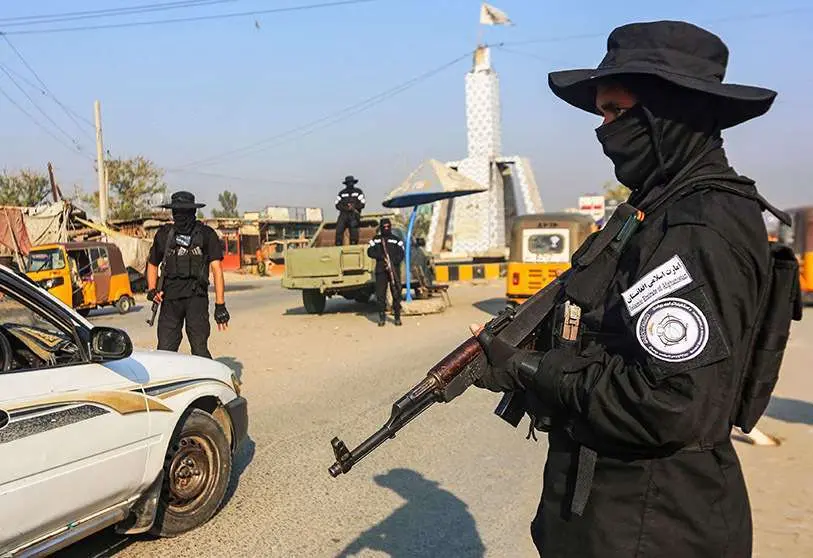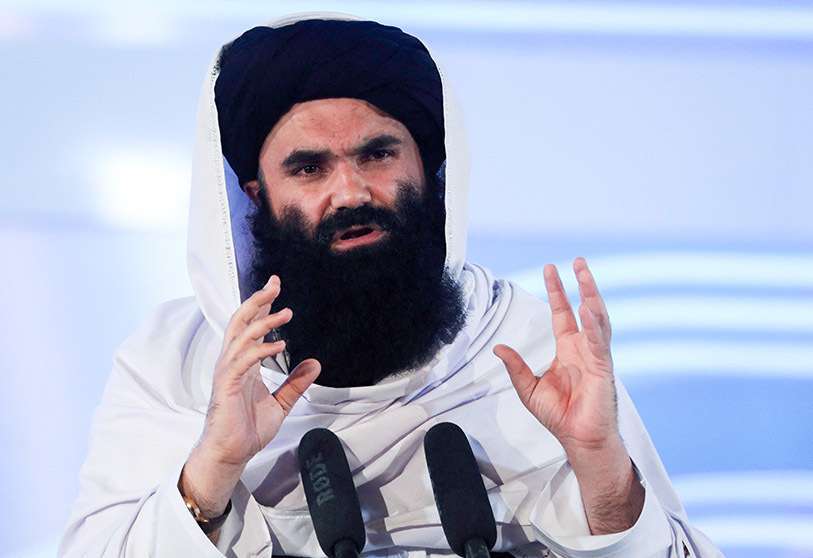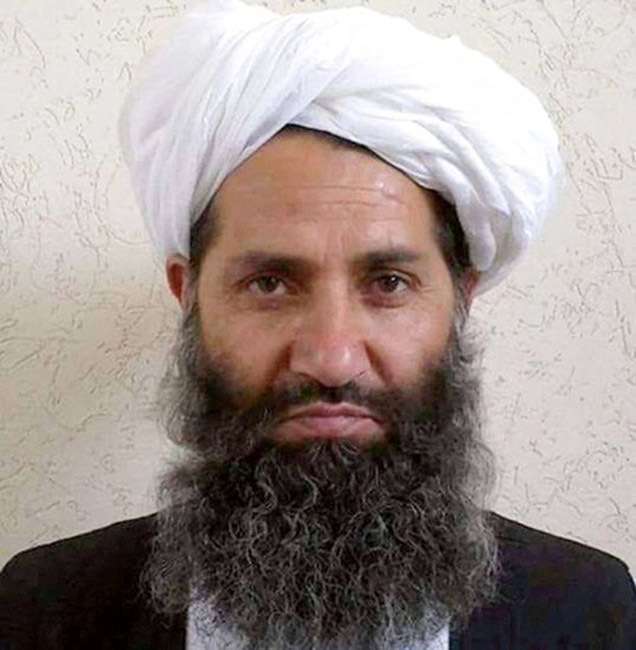Afghanistan: first public execution since Taliban return to power

Almost a year and a half has passed since the Taliban regained power in Afghanistan - two decades after US troops entered the country in 2001 - and, despite initial promises that their new regime would be marked by greater moderation and respect for human rights (always in accordance with the sacred law of Islam, or Sharia), the reality facing Afghan citizens today seems to be little - if any - different from the Taliban regime of the 1990s.
The first public execution under the 'de facto' Taliban rule since August 2021 may bear this out. In an event in Farah that brought together hundreds of spectators and leading figures of the Islamic Emirate - such as the co-founder of the Taliban group and Deputy Prime Minister of the country, Mullah Abdulghani Baradar, and the Minister of the Interior and leader of the Haqqani Network guerrilla group, Sirajudin Haqqani - the Afghan Tajmir was executed on charges of having killed another man, Mustafa.
The decision to carry out this sentence "has been taken very carefully," said the Taliban government's chief spokesman, Zabihullah Mujahid. According to the Taliban authorities, the final sentence was not handed down until three of the highest courts across the country and the supreme leader of the fundamentalist group, Hibatullah Akhundzada, approved the application of the death penalty.
حکم الهی قصاص بالای یکتن قاتل در ولایت فراه از سوی ستره محکمۀ امارت اسلامی تطبیق شدhttps://t.co/tp84XjrycO pic.twitter.com/rlkkTmE69R
— Zabihullah (..ذبـــــیح الله م ) (@Zabehulah_M33) December 7, 2022
"The Supreme Court was instructed to implement this order of qisas [an Islamic principle that the offender should suffer harm equal to the harm he caused] during a public rally," Mujahid explained. "Prayers for the consolidation of national security in the country, more attention to the rights of the people, and better implementation of 'Sharia' law were held after the event," he concluded.
Tajmir, the executed Afghan from Herat province, was sentenced to death five years ago after the victim's family accused him of killing Mustafa and stealing his motorbike and mobile phone. A statement issued by Mujahid explained that Tajmir had allegedly confessed to the murder, although it did not specify the place and time of the arrest.
This execution, however, does not seem to have come as much of a surprise since the head of prisons - and head of the religious police during the 1996-2001 regime - Mullah Nooruddin Turabi, announced in September 2021 the new Taliban government's intentions to resume extreme physical punishments, such as amputations and executions. "They are necessary for security," Turabi said, assuring that these sentences would not be carried out publicly, as they were in the 1990s. Something that now, 15 months later, seems to have changed.

The case of four bodies hung on cranes and exposed to the public in the city of Herat, four alleged kidnappers of a man and his son, was - also in September 2021 - an example that executions, despite being carried out in private, had not stopped. "Whoever carries out a kidnapping will suffer the same fate," read a sign hung across the chests of the four men. And, following the words of Sher Ahmad Ammar, the local deputy governor ("We are the Islamic Emirate. No one must harm our nation. No one should kidnap"), Taliban responsibility for the execution was assumed.
"After a few minutes of fighting [at a checkpoint where the Taliban interrupted the escape of the alleged kidnappers], one of our mujahideen was wounded, and the four kidnappers were killed," was the official statement sent to the French news agency AFP by the Taliban authorities.

In addition to the disappointing - disappointing for Western governments - moderation promised by the Taliban leadership, there have also been restrictions on women, ethnic minorities and vulnerable groups, who "for the sake of Sharia law", have seen little improvement in their human rights situation. The restriction of women's movement, the ban on teenage girls attending schools, the veto on a large number of jobs, or the obligation to travel in the company of men are just some of the rules decreed by the Taliban regime that international actors - ranging from human rights NGOs to the UN General Assembly - have condemned in a new regime that, they hoped, would be much more moderate.
Meanwhile, Afghanistan remains mired in instability caused by poverty and the threat of terrorist attacks. In the last few weeks alone, the country has suffered at least three terrorist attacks: one against an Islamic centre in the north of the country, where some 20 young students were killed; another in the city of Mazar-e-Sharif against a vehicle carrying Petroleum Resources Department officials, where at least six people were killed and seven wounded; and a third in Jalalabad, a city in the east of the country, where a bomb exploded in the foreign exchange market.








